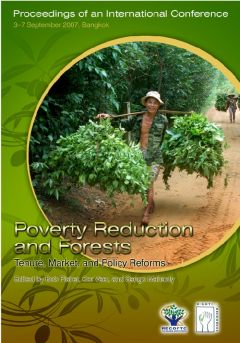Community Forestry Management for Whom? Learning from Field Experience in Vietnam
The Forest Governance Learning Group (FGLG) Vietnam undertook a survey in Dak Lak and Thua Thien Hue provinces between December 2006 and April 2007. The survey aimed to provide insights into different forms of community forest management, the factors influencing its success, and their contribution to poverty alleviation.



